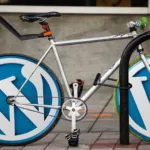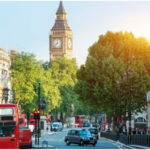It seems that there is never a time in the world where we can be assured that prosperity for a large percentage of the population is a safe bet for the foreseeable future. There always seems to be another financial crisis lurking around the corner, even when things seem the most settled. That reality can be a scary one for people to confront since they have their own financial stakes to consider. If you are the head of a household or a family, this prospect can be even more daunting, since you also have to worry about the fortunes of those who count on you as well as your own when you write those cheques. The stress from wondering what’s coming next from the economy at large can be unbearable at times.
Luckily, there are ways to safeguard against your own finances tumbling down with the rest of the world should a recession, depression, or some other financial calamities take place. Financial well-being even in the most difficult times takes a great deal of discipline and self-control. And those qualities have to be exerted even when things are going well and you have a surplus in your individual bank account. The old adage says that you must find a way to expect the unexpected. That might not be realistic, of course, but if you can find ways of preparing yourself and your finances for even the worst-case scenario, you’ll be able to maintain a solid state of mind even if the awful financial situation comes to pass.
As someone who is financially responsible, it’s a good idea to always have personal cheques on hand to ensure that all your payments get to where they need to go in plenty of time. Financial stability in strenuous economic times can be achieved, but you have to start the readiness activities now while all is calm.
Diversification in Your Investments
First of all, besides the money in your checking account, you should have investments, something that you can look to in an uncertain future as a stream of income. Once you decide to invest, you have to make sure that you have to have them spread around different financial instruments, such as stocks, bonds, real estate and the like. Within those individual vehicles, you should also spread out your portfolio to different segments of the market.
Working Hard
When the economy is strong, that’s when a lot of different companies are hiring. Although having one steady job can seem like enough when times are good, it might be a good idea to freelance a little whenever you can to amass extra funds, which you can put away for later.
The Savings Account
This one can’t be stressed enough. Too many people shovel all their funds into one account, which makes it seem like they can spend when they have a little more than they need. Putting a certain amount away will keep you from spending your surplus, surplus you’ll likely need when times get tough to avoid late payments.
Remember that the way to get through the bad times is to get yourself ready for the good. Only then can you assure yourself of financial stability no matter what the big picture looks like.








